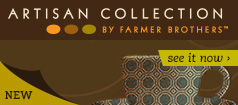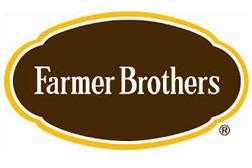TORRANCE, Calif. – Farmer Bros. Co. recently announced its first sustainability report outlining its progress and ongoing commitment to sustainable practices locally and in the global coffee community. Through this report, which is available for download, Farmer Brothers outlines its sustainability framework and presents baseline results for an environmental and social scorecard.
With certifications from Rainforest Alliance, Fair Trade USA (TransFair USA), Utz, LEED, Safe Quality Food, QAI and USDA Organic, Farmer Brothers continues to prove its commitment to the sustainability effort.
“Sustainability takes patience, commitment and an openness to change,”said Mike Keown, president and CEO of Farmer Brothers in a statement released by the company.
“As a business that survived the Great Depression with the mantra ‘Use it up, wear it out, make do, or do without,’ we’re guided by a heritage of sensible frugality that created the foundation for many sustainability practices today.
“We also have a deep-rooted commitment to the environment and the farmers who grow our core coffee and tea products,” he added.
The report illustrates Farmer Brothers’ sustainability framework, SEED (Social, Environmental and Economic Development), which is designed as a “triple-bottom-line” approach to sustainability where human capital and natural capital hold the same value as financial capital.
 The social pillar of SEED works to promote fair, safe and healthful environments within the company, local communities and global supplier partners. Farmer Brothers donates more than a $1 million in cash and products each year to organizations that address food security, both locally and globally.
The social pillar of SEED works to promote fair, safe and healthful environments within the company, local communities and global supplier partners. Farmer Brothers donates more than a $1 million in cash and products each year to organizations that address food security, both locally and globally.
The environmental pillar focuses on minimizing corporate impact by reducing emissions, shifting the waste ratio (landfill, recycling, composting), and managing inputs through internal campaigns such as “Idle No More,” which encourages drivers to turn off trucks when possible.
Farmer Brothers was recently awarded membership into the EPA Green Power Partnership Club for purchasing 100% wind power renewable energy credits for electricity used in the company’s Portland facility.
The economic pillar demonstrates that the long-term economic viability of the company is dependent on supply-chain stability, risk mitigation, continual improvement of processes, cost management, market expansion and innovation.
Board-level leadership with World Coffee Research (WCR) and Coffeelands Food Security Coalition has helped to fuel Farmer Brothers’ efforts to find solutions to some of the most important issues in coffee production: lack of biodiversity and food insecurity.
Additionally, the company’s growing portfolio of Direct Trade coffees provides enhanced opportunity to farmers, through a transparent and traceable buying program.
Tea Time
Farmer Brothers has also focused much of its efforts this year relaunching its dispensed tea program under the Island Medley Iced and Hot Tea brand. Tailored for c-stores, early returns on Island Medley are positive, Keown tells Convenience Store Products. “Dispensed tea is one of the fastest-growing beverages, and the most profitable [for retailers].”
Marketed under what it calls premium and select varieties, some of the flavors offered include Sweetened, Citrus Green, Sweet Jamaican Tropical, Georgia Peach and Catalina Lemonade.
Similar to its gourmet/artisan coffee program, ingredients that comprise Island Medley teas are carefully sourced. “All our teas are hand-selected by independent tea specialists to ensure quality,” Keown says.
“Consumers like the fact that the flavors are true to the promise we made. So, a Catalina Lemonade Tea tastes just like what the name suggests.”
In conducting research for the new offer, Keown says the advent of Island medley came after some strong feedback regarding consumers’ adoption of dispensed tea. Ready-to-drink coffee has grown 29% over the past year, while the dispensed iced tea category grew faster than soft drinks in 2012—buoyed by the demand of younger consumers, such as the millennial set.
“In the cold dispensed tea world, younger tea drinkers enjoy sweet tea, but you have to walk a fine line because too sweet won’t work. You need to infuse an exotic flavor that brings out the tea notes. The question is, how do you find the spot right in between refreshing and the essence of tea?” says Keown.
“It’s powerful to see how gourmet dispensed iced tea varies among users: A 24-year-old woman from the South has a different expectation about the formulation of the product than an older consumer in the West.”


















